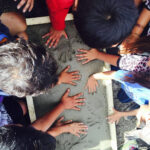Melina Laboucan-Massimo’s Path to Clean Energy Entrepreneurship
By Karen Pinchin
Born in Little Buffalo, a remote Alberta community ringed by oil extraction efforts, Melina Laboucan-Massimo knows the feeling of being helpless in the face of a warming planet. Every time her family drove across their traditional Lubicon Cree First Nation homelands, the landscape felt drier, its vegetation less vibrant.
“It still looked like a forest, but there was a lot of impact from industry, a lot of cutlines,” she says. “Or you’d see heavy-haul equipment up and down the highway.”
After years of trying to find her path, she eventually found it: fighting climate change, first as a long-time campaigner for the environmental group Greenpeace, and later as the lead of a 20.8 kilowatt solar energy project in her hometown.
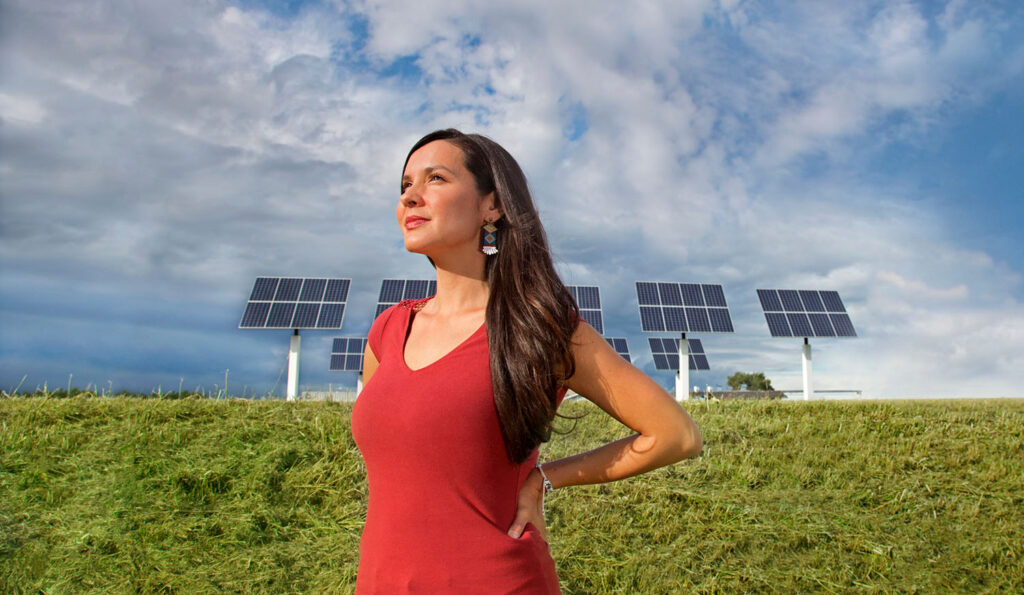
Courtesy of Greg Miller, UVic
Yet, before activism and entrepreneurship, Laboucan-Massimo’s first love was dance. She started ballet when she was five years old, practising in a small studio in Slave Lake and continuing when her family moved to Calgary, where she also played sports and excelled in academics.
“It was bittersweet, being happy and able to get through the system, but knowing that was definitely not how my own siblings felt,” she says. “Or even how it was for many other Indigenous people.”
It helped, she adds, that two different white teachers—both named Mr. Smith—identified her early promise. “[I felt] accepted in their classrooms, that I was allowed to be there and welcome,” she says, and that made her feel comfortable to excel. Despite being bullied for her background—in Grade 5, kids at school called her an offensive slur related to her Indigenous heritage—she graduated high school at only 16 years old.
Over the next decade, Laboucan-Massimo travelled the world, worked in emerging digital filmmaking, and was hired as an environmental campaigner for Greenpeace, where she testified in front of the US Congress. But her plans changed suddenly in April 2011, when nearly 30,000 barrels of crude oil spewed across her beloved childhood forests, wafting poisonous fumes towards Little Buffalo, including its local school. Children complained of headaches, dizziness, and nausea, even as Plains Midstream Canada ULC, the oil company responsible for the spill, downplayed the severity of the problem.
That tragedy inspired Laboucan-Massimo to find an energy alternative for her community. She enrolled at the University of Victoria and graduated with a master’s degree in Indigenous governance with a focus on renewable energy. While completing that degree, she planned a solar-energy project for Little Buffalo and brought it to life: it now powers the town’s health centre. That formed the foundation of Sacred Earth Solar, where Laboucan-Massimo started to pair social justice and climate justice for Indigenous communities like her own.
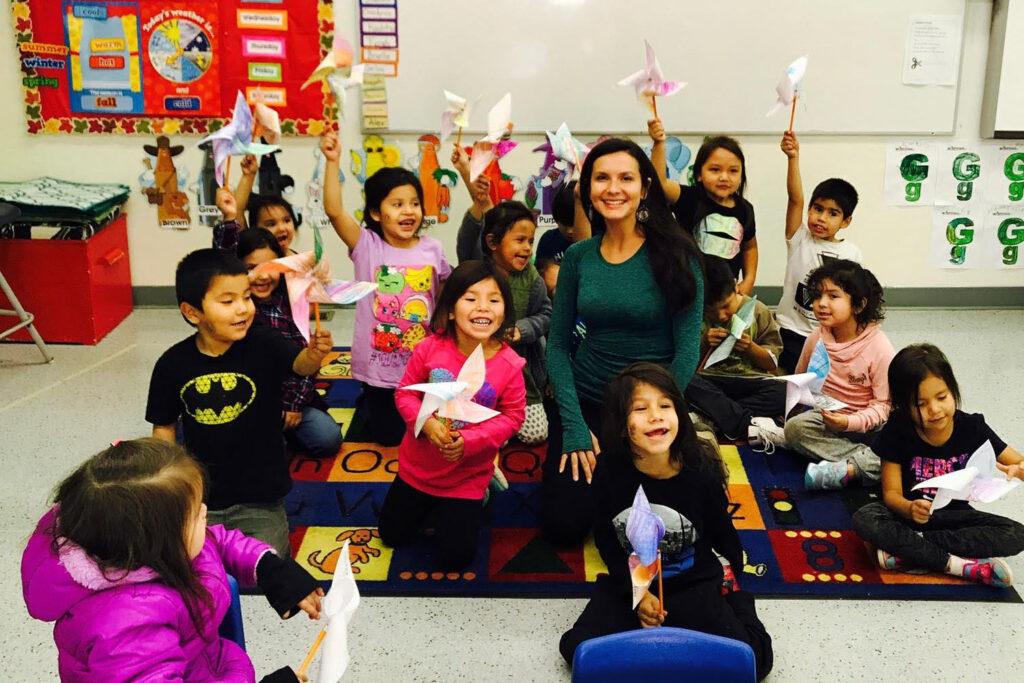
Laboucan-Massimo spends time playing climate literacy games with students.
Courtesy of Sacred Earth Solar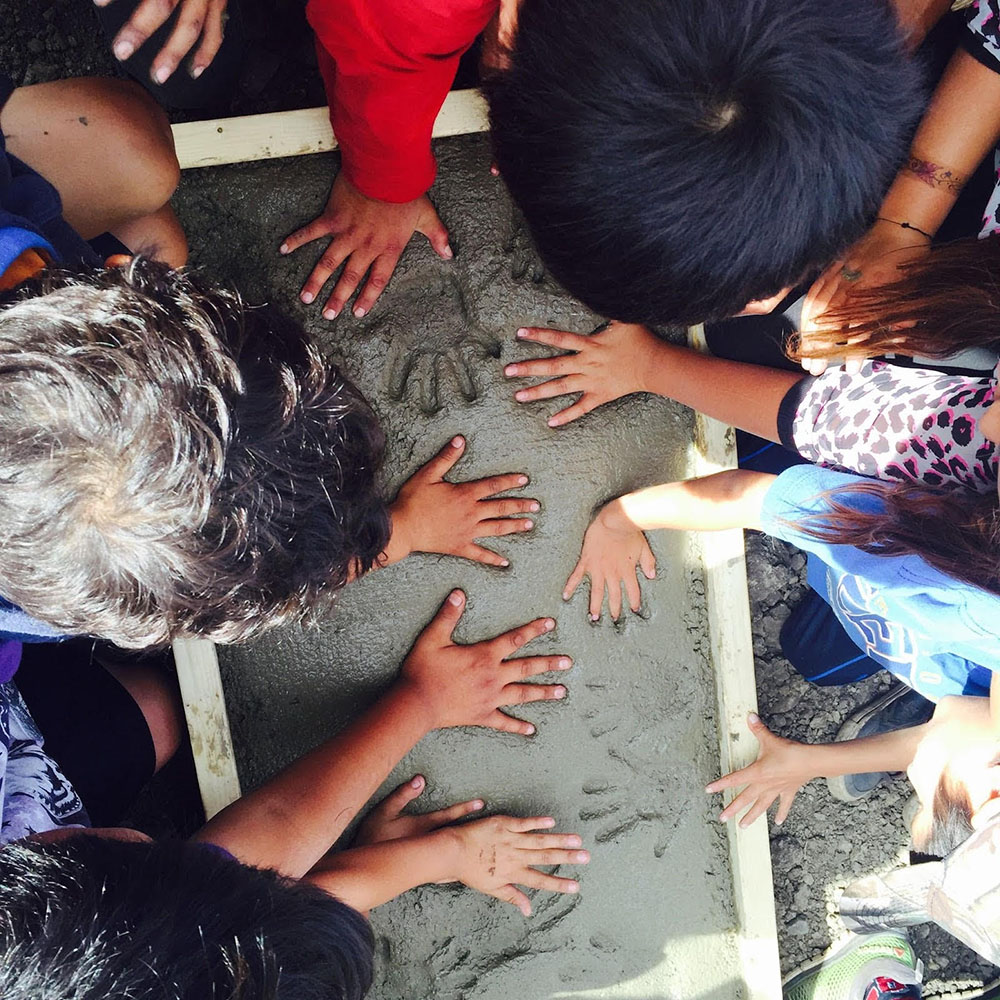
Little Buffalo students taking part in solar development.
Courtesy of Sacred Earth Solar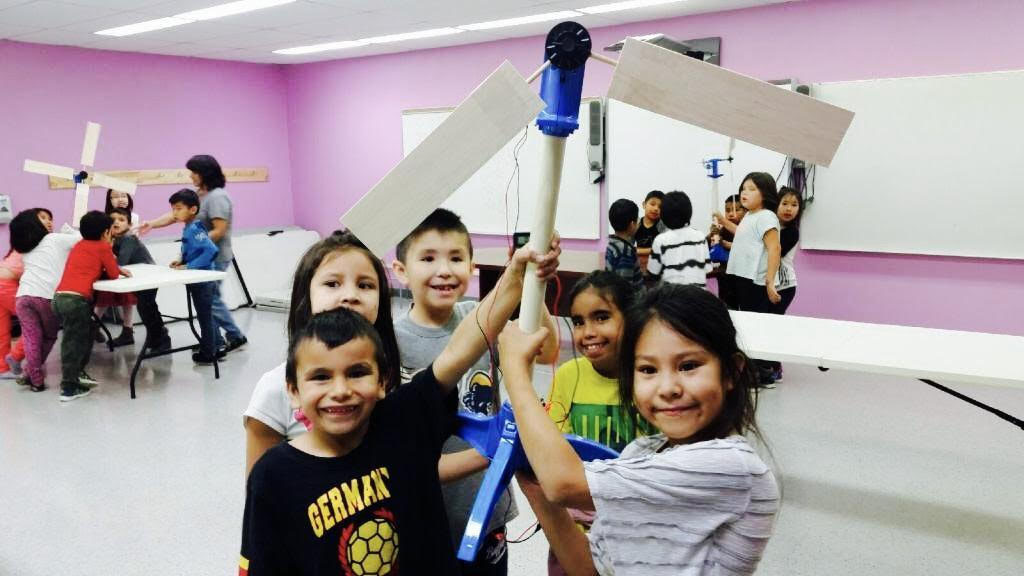
Students taking part in climate workshops at their school.
Courtesy of Melina-Laboucan Massimo
“Resources have been taken from our homelands, and we have seen billions and billions of dollars extracted from our territories,” she says. “Energy transition is not going to happen unless we push for it.”
Laboucan-Massimo is now the co-founder and senior director of Indigenous Climate Action, the host of the documentary series Power to the People, and speaks on climate change panels alongside celebrities including Jane Fonda and Mark Ruffalo. Her passion for renewable energy, she says, has finally dovetailed with the agency and justice she’s been chasing—in hindsight—all her life.
